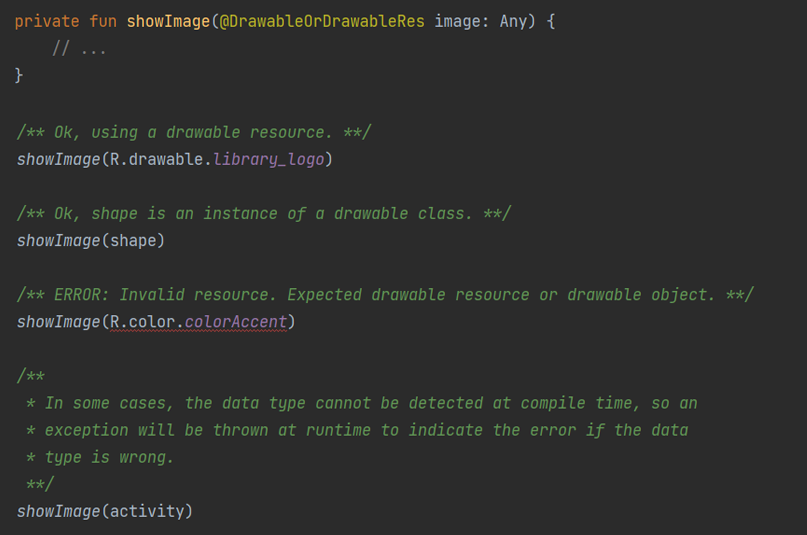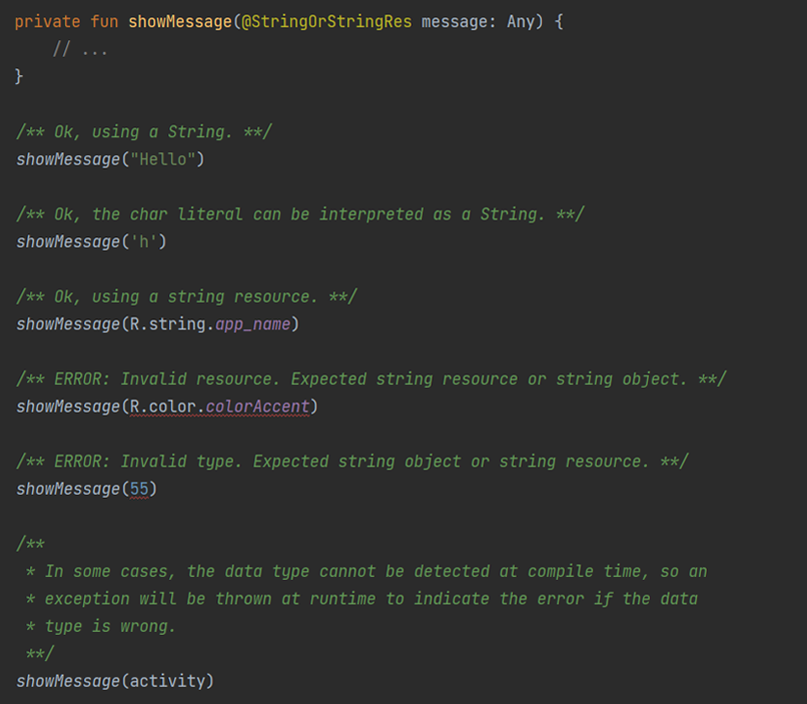Code Inspection Annotations
Description
These annotations are designed to guide the developer on the type of data or resource that can be assigned to a property or variable, the library has the Lint Check module that tells the IDE how to verify the use of annotations and display warnings in case an incorrect value is detected.
Generally, when these annotations are used, the expected data type is Any to give you the flexibility to accept different data types. For example, in some cases,
a String data type is expected, which is processed as is, but an Int data type (which represents the resource ID) can also be expected and in this case
the String is obtained from the resources by means of its ID. The library allows this flexibility and is in charge of identifying and treating the data
type appropriately, and in case the data type cannot be properly treated, an exception is thrown.
In some cases, the use of values of the wrong data type cannot be detected at compile time, but an exception will be thrown at runtime if it is detected.
Annotations
@DrawableOrDrawableRes
[ Reference ]
Indicates that the expected value or object should be a Drawable object or the ID of a drawable resource. For example: drawableObject, R.drawable.demo.
Detection example in Android Studio:

@StringOrStringRes
[ Reference ]
Indicates that the expected value or object must be a data type String, Char (since it can be represented as String), or the ID of a string resource.
For example: 'a', "Hello", R.string.demo
Detection example in Android Studio:

Custom Implementation
Annotations for code inspection are used by library classes, but you can also assign them to any property or parameter that you require.
In this case, add the required annotation, for example:
private fun showImage(@DrawableOrDrawableRes image: Any) { ... }
private fun showMessage(@StringOrStringRes message: Any) { ... }
Then, to process the value, the library has extension functions to get the value easily:
typeAsDrawable
It is a context extension function, that allows you to parse the data type and always treat it as aDrawable.
[ Reference ]
private fun showImage(@DrawableOrDrawableRes image: Any) {
val finalImage = typeAsDrawable(image)
}
typeAsString
It is a context extension function, that allows you to parse the data type and always treat it as aString.
[ Reference ]
private fun showMessage(@StringOrStringRes message: Any) {
val finalMessage = typeAsString(message)
}